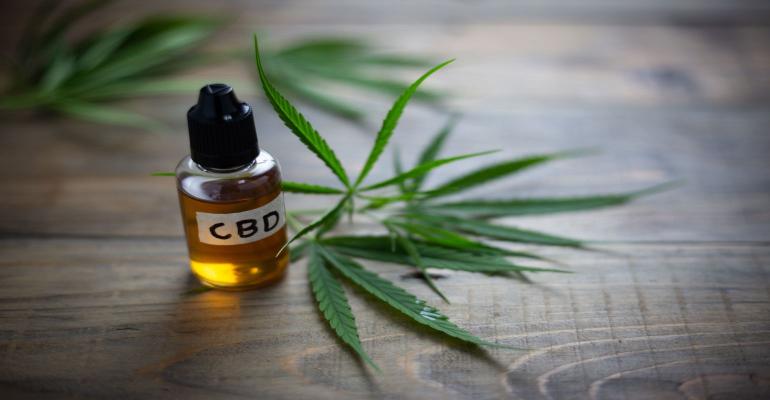A bill that passed Wednesday in the state assembly clarifies food, drinks and cosmetics that contain hemp-derived CBD are legal for sale in California.
The California State Assembly on Wednesday passed a bill that would authorize the retail sale of hemp-derived cannabidiol (CBD)—a move intended to supplant a position adopted by health officials in 2018 that has caused a commotion.
Assembly Bill 228 passed by a final vote of 76 to 0, according to a source in the California State Legislature.
“Our bill now goes to the Senate, where we hope and expect to get the same kind of tremendous bipartisan support that helped us pass the Assembly today,” Assemblywoman Cecilia Aguiar-Curry, a Democrat who introduced the legislation, said in an email through a staff member.
Asked Wednesday whether Gov. Gavin Newsom supports or opposes AB 228, spokesman Brian Ferguson said the bill “would be evaluated on its own merits” if it reaches the governor’s desk as with any proposed law.
AB 228 clarifies food, drinks and cosmetics that contain hemp-derived CBD are legal for sale in California, according to a fact sheet from Aguiar-Curry. The bill, the U.S. Hemp Roundtable wrote in a recent update, “would expressly permit the retail sale of hemp-derived CBD in foods and supplements, and also in topical applications.”
The legislation was introduced in response to a statement adopted in 2018 by the California Department of Public Health (CDPH), which asserted CBD could not be used in any animal or human food, including dietary supplements.
According to a local media report by NBC KNTV, health officials from Los Angeles to San Francisco have taken enforcement actions against CBD products—including raiding an LA warehouse and impounding $100,000 worth of a CBD oil-infused beverage.
In an email, the LA County Department of Public Health explained only cannabis retail stores are permitted to sell CBD-infused food and beverages approved by the local city and state. The LA-based health agency noted it was enforcing guidelines adopted by the CDPH.
“The position of state regulators is severely limiting Californians’ access to a product that many consumers believe substantially improves their health and wellness,” Aguiar-Curry said in a statement. “This is disrupting manufacturers, retailers, and farmers, and is also putting the state’s agricultural industry at a disadvantage in pursuing a national market estimated to reach $20 billion annually in the next few years.”
Not surprisingly, AB 228 has the support of the hemp industry.
“It is encouraging to see California embrace the opportunity for hemp-derived CBD to be marketed in regular retail channels,” said Colleen Keahey Lanier, executive director of the Hemp Industries Association, in an email. “Since the 2018 Farm Bill established hemp as an agricultural commodity, our mission is to help advance opportunities for hemp in the marketplace—unrestricted, where it belongs.”
Although the 2018 Farm Bill—formally known as the Agricultural Improvement Act of 2018—removed hemp from the Controlled Substances Act, the federal government has continued to pose an obstacle to products containing hemp and its derivatives.
Based on its interpretation of federal law, FDA has argued for years that CBD cannot be sold as a dietary supplement or added to a conventional food in interstate commerce. FDA has written warning letters to marketers that its former commissioner said are making “over-the-line claims.”
But FDA hasn’t pestered most companies in the CBD space, and passage of AB 228 in the California State Assembly comes amid growing support in Washington for a federal solution that would allow various CBD products—including dietary supplements—to be lawfully marketed in interstate commerce. FDA has scheduled a public hearing on May 31 in Silver Spring, Maryland to explore the issues, including any potential safety concerns with CBD-containing products.
“We are eager to work with FDA to establish an appropriate, efficient and predictable regulatory framework that allows a pathway for product developers to lawfully market various types of hemp-derived products,” said Douglas “Duffy” MacKay, senior vice president of scientific and regulatory affairs of CV Sciences Inc., in a statement.
MacKay, whose San Diego-based employer posted 2018 product sales of $48.2 million, is among nearly 140 people who were selected to speak at FDA’s meeting next week.
Aguiar-Curry suggested California’s treatment of hemp-derived products is nonsensical.
“Ironically, even as the federal government has begun removing barriers to legal use of hemp-derived products, California, the first state in the country to legalize intoxicant cannabis products for medical use, is taking the opposite approach,” she proclaimed in a statement.
The Assemblywoman added, “This position has put California in an Alice-in-Wonderland world in which adult consumers can walk into a licensed marijuana dispensary and purchase all manner of recreational cannabis products, but they cannot legally purchase non-intoxicating hemp products that they believe can bring them calm and ease their pain.”
Original Article: https://www.naturalproductsinsider.com/regulatory/california-state-assembly-passes-bill-authorizing-retail-sales-cbd-food-supplements










